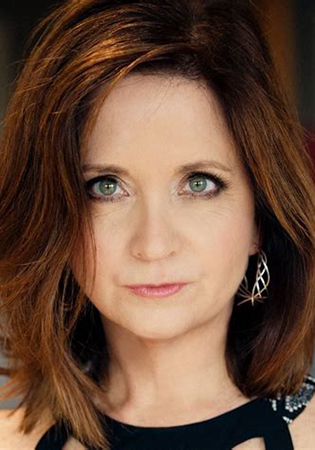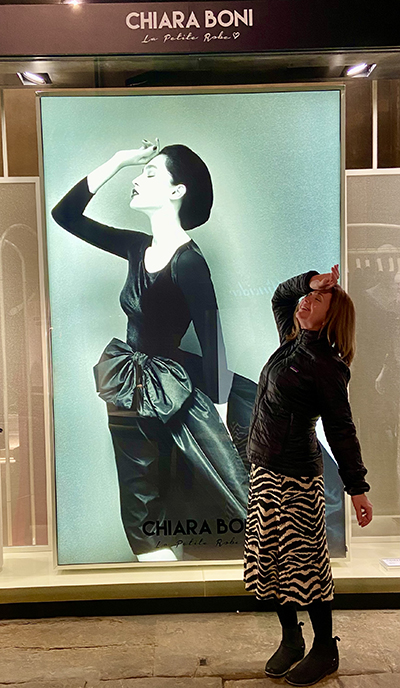
Teri Youmans
- Fiction, Creative Nonfiction, and Poetry Mentor
- MFA in Writing
Additional Information
Biography
TERI YOUMANS
is a fourth generation Floridian. She received her BFA in poetry at the University of Nebraska at Omaha and her MFA at Vermont College of Fine Arts. She’s published two poetry collections. Her first, Dirt Eaters was chosen for the University of Central Florida’s contemporary poetry series and was published by the University Press of Florida. Her second book, Becoming Lyla Dore, was published by Red Hen Press. She is currently at work on a memoir about alligator hunting, generational abuse and dancing with the devil.
Her poetry, fiction and non-fiction/memoir have appeared in The Rumpus, Prairie Schooner, The Keepthings, Green Mountains Review, Indiana Review, South Dakota Review, Connecticut Review, Sugar House Review, Columbia: A Journal of Literature and Art, and Homegrown in Florida: An Anthology of Florida Childhoods, among other journals and anthologies. She is the recipient of a Nebraska Arts Fellowship and has been awarded residencies at Millay Arts, Virginia Center for the Creative Arts and the Hambidge Center. She has taught in Creighton University's MFA Program, at the University of North Florida, and in the University of Nebraska at Omaha’s low-res MFA program since. Teri lives in Jacksonville, Florida.
Teaching Philosophy
“Intention—that’s a word I use a lot when working with my MFA students. I try to make it clear that in early drafts of any creative work, intention doesn’t have a place, because coming to the page already knowing what you want to say is not a good thing. Whether one is writing a poem, a memoir, or a short story, there must be a suspension of that knowing, to exist in a place of, as Charles Simic calls it, 'The Uncertain Certainty.' Isn’t that lovely?
"I try to emphasize to my writers that it is okay to be in a place of not knowing everything about our subject matter, as this allows for possibility in language and narration. It leaves us open to be surprised by what is deep within us.
"This is similar to Richard Hugo’s thoughts in his terrific book of essays on writing, The Triggering Town. He stresses the importance of letting go of the 'triggering subject' and the limits that come with knowing the subject of our poem or story or memoir too well.
"Which leads me to the second way I talk about intention with my students.
It starts with a question I ask of my own work once a solid draft is in place and it’s the question I ask my students to consider of theirs as well: What do I want my reader to come away knowing or feeling?
"For instance, I’ll ask myself, ‘If this piece had a song accompanying it, or a soundtrack—what would it sound like? What’s the tempo? The rhythm? What sort of instruments are featured and how does that translate to the page?'
"This is the stage when take a draft and turn it into something that has 'wholeness' (even if that 'wholeness' is fragmented or purposely jarring). This is when the crafting of the work takes place. It’s when the work becomes layered and resonant. It’s when the sum of the piece becomes greater than its parts.
"This is when we work together on the poem, story or memoir so that it moves the reader toward our emotional intentions."


Additional Information
Biography
TERI YOUMANS
is a fourth generation Floridian. She received her BFA in poetry at the University of Nebraska at Omaha and her MFA at Vermont College of Fine Arts. She’s published two poetry collections. Her first, Dirt Eaters was chosen for the University of Central Florida’s contemporary poetry series and was published by the University Press of Florida. Her second book, Becoming Lyla Dore, was published by Red Hen Press. She is currently at work on a memoir about alligator hunting, generational abuse and dancing with the devil.
Her poetry, fiction and non-fiction/memoir have appeared in The Rumpus, Prairie Schooner, The Keepthings, Green Mountains Review, Indiana Review, South Dakota Review, Connecticut Review, Sugar House Review, Columbia: A Journal of Literature and Art, and Homegrown in Florida: An Anthology of Florida Childhoods, among other journals and anthologies. She is the recipient of a Nebraska Arts Fellowship and has been awarded residencies at Millay Arts, Virginia Center for the Creative Arts and the Hambidge Center. She has taught in Creighton University's MFA Program, at the University of North Florida, and in the University of Nebraska at Omaha’s low-res MFA program since. Teri lives in Jacksonville, Florida.
Teaching Philosophy
“Intention—that’s a word I use a lot when working with my MFA students. I try to make it clear that in early drafts of any creative work, intention doesn’t have a place, because coming to the page already knowing what you want to say is not a good thing. Whether one is writing a poem, a memoir, or a short story, there must be a suspension of that knowing, to exist in a place of, as Charles Simic calls it, 'The Uncertain Certainty.' Isn’t that lovely?
"I try to emphasize to my writers that it is okay to be in a place of not knowing everything about our subject matter, as this allows for possibility in language and narration. It leaves us open to be surprised by what is deep within us.
"This is similar to Richard Hugo’s thoughts in his terrific book of essays on writing, The Triggering Town. He stresses the importance of letting go of the 'triggering subject' and the limits that come with knowing the subject of our poem or story or memoir too well.
"Which leads me to the second way I talk about intention with my students.
It starts with a question I ask of my own work once a solid draft is in place and it’s the question I ask my students to consider of theirs as well: What do I want my reader to come away knowing or feeling?
"For instance, I’ll ask myself, ‘If this piece had a song accompanying it, or a soundtrack—what would it sound like? What’s the tempo? The rhythm? What sort of instruments are featured and how does that translate to the page?'
"This is the stage when take a draft and turn it into something that has 'wholeness' (even if that 'wholeness' is fragmented or purposely jarring). This is when the crafting of the work takes place. It’s when the work becomes layered and resonant. It’s when the sum of the piece becomes greater than its parts.
"This is when we work together on the poem, story or memoir so that it moves the reader toward our emotional intentions."

